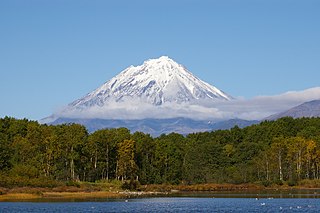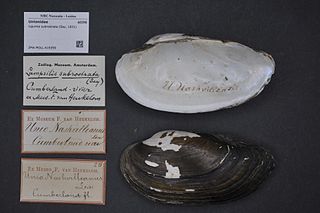
Southwest Australia is a biogeographic region in Western Australia. It includes the Mediterranean-climate area of southwestern Australia, which is home to a diverse and distinctive flora and fauna.
The conservation status of a group of organisms indicates whether the group still exists and how likely the group is to become extinct in the near future. Many factors are taken into account when assessing conservation status: not simply the number of individuals remaining, but the overall increase or decrease in the population over time, breeding success rates, and known threats. Various systems of conservation status are in use at international, multi-country, national and local levels, as well as for consumer use such as sustainable seafood advisory lists and certification. The two international systems are by the International Union for Conservation of Nature (IUCN) and The Convention on International Trade in Endangered Species of Wild Fauna and Flora (CITES).

NatureServe, Inc. is a non-profit organization based in Arlington County, Virginia, US, that provides proprietary wildlife conservation-related data, tools, and services to private and government clients, partner organizations, and the public. NatureServe reports being "headquartered in Arlington, Virginia, with regional offices in four U.S. locations and in Canada." In calendar year 2011 they reported having 86 employees, 6 volunteers, and 15 independent officers.

The Cape Floral Region is a floristic region located near the southern tip of South Africa. It is the only floristic region of the Cape Floristic Kingdom, and includes only one floristic province, known as the Cape Floristic Province.

The Glen Nature Reserve is a protected nature reserve in the Hunter Region of New South Wales, in eastern Australia. The 2,750-hectare (6,800-acre) reserve, which was gazetted in January 1999, is situated approximately 25 kilometres (16 mi) south-east of Gloucester, off Bucketts Way.

The Succulent Karoo is an ecoregion defined by the World Wide Fund for Nature to include regions of desert in South Africa and Namibia, and a biodiversity hotspot. The geographic area chosen by the WWF for what they call 'Succulent Karoo' does not correspond to the actual Karoo.

Warren, also known as Karri Forest Region and the Jarrah-Karri forest and shrublands ecoregion, is a biogeographic region in southern Western Australia. Located in the southwest corner of Western Australia between Cape Naturaliste and Albany, it is bordered to the north and east by the Jarrah Forest region. Its defining characteristic is an extensive tall forest of Eucalyptus diversicolor (karri). This occurs on dissected, hilly ground, with a moderately wet climate. Karri is a valuable timber and much of the karri forest has been logged over, but less than a third has been cleared for agriculture. Recognised as a region under the Interim Biogeographic Regionalisation for Australia (IBRA), and as a terrestrial ecoregion by the World Wide Fund for Nature, it was first defined by Ludwig Diels in 1906.

The Hottentots Holland Mountains are part of the Cape Fold Belt in the Western Cape, South Africa. The mountain range forms a barrier between the Cape Town metropolitan area and the southern Overberg coast.

Truncilla truncata, the deertoe, is a species of freshwater mussel, an aquatic bivalve mollusk in the family Unionidae.

Truncilla is a genus of freshwater mussels, aquatic bivalve mollusks in the family Unionidae, the river mussels.

The Maputaland-Pondoland-Albany Hotspot (MPA) is a biodiversity hotspot, a biogeographic region with significant levels of biodiversity, in Southern Africa. It is situated near the south-eastern coast of Africa, occupying an area between the Great Escarpment and the Indian Ocean. The area is named after Maputaland, Pondoland and Albany. It stretches from the Albany Centre of Plant Endemism in the Eastern Cape Province of South Africa, through the Pondoland Centre of Plant Endemism and KwaZulu-Natal Province, the eastern side of Eswatini and into southern Mozambique and Mpumalanga. The Maputaland Centre of Plant Endemism is contained in northern KwaZulu-Natal and southern Mozambique.

The wildlife of Russia inhabits terrain that extends across 12 time zones and from the tundra region in the far north to the Caucasus Mountains and prairies in the south, including temperate forests which cover 70% of the country. Russia's forests comprise 22% of the forest in the world as well as 33% of all temperate forest.

Silwerboomkloof Natural Heritage Site is a small, protected valley (“kloof”), near the Helderberg Nature Reserve, in Somerset West, South Africa.

Kogelberg Nature Reserve is a nature reserve of 3,000 ha comprising the Kogelberg Mountain Range, to the east of Cape Town, South Africa.

Buena Vista Lagoon is a freshwater lagoon adjacent to the Pacific Ocean in the South Coast region of Southern California within the North County region of San Diego County. The lagoon covers 223 acres of wetland habitat and serves as a geographic border between Carlsbad and Oceanside.

An interdunal wetland, interdunal pond or dune slack is a water-filled depression between coastal sand dunes. It may be formed either by wind erosion or by dunal encroachment on an existing wetland. The wind erosion process involves wind scooping out sufficient sand to reach the water table, and typically occurs behind the first line of foredunes.
The Little Llangothlin Nature Reserve is a protected wetland nature reserve that is located on the Northern Tablelands in the New England region of New South Wales, in eastern Australia. The 257-hectare (640-acre) reserve is situated approximately 10 kilometres (6.2 mi) north-east of the rural locality of Llangothlin, and some 20 kilometres (12 mi) north-east of Guyra.

Sagittunio subrostratus, commonly referred to as the pondmussel or black pondmussel, is a species of freshwater mussel, an aquatic bivalve in the family Unionidae, the river mussels.
Hemidonax is a genus of bivalve molluscs. It is the only genus in the family Hemidonacidae, which is the only family in the superfamily Hemidonacoidea in the order Venerida.
The Rocherpan Marine Protected Area is a small coastal conservation region on the West Coast of the Western Cape province, in the territorial waters of South Africa. It is about 25 km north of Velddrif on the road to Elands Bay, north of Dwarskersbos.
















